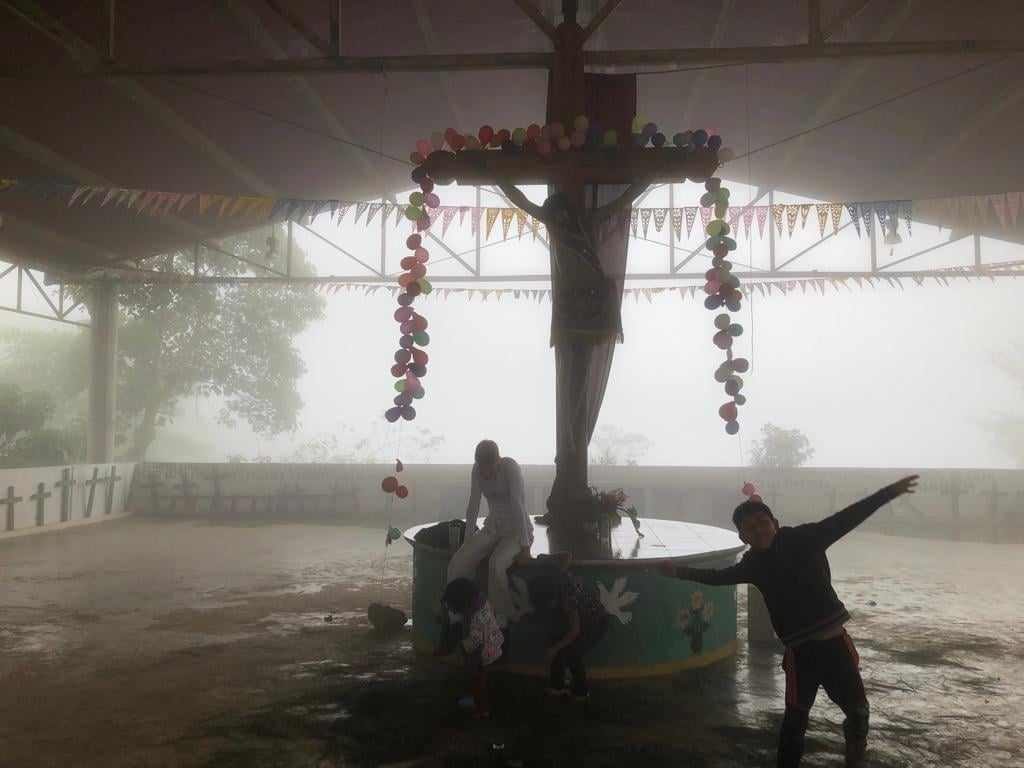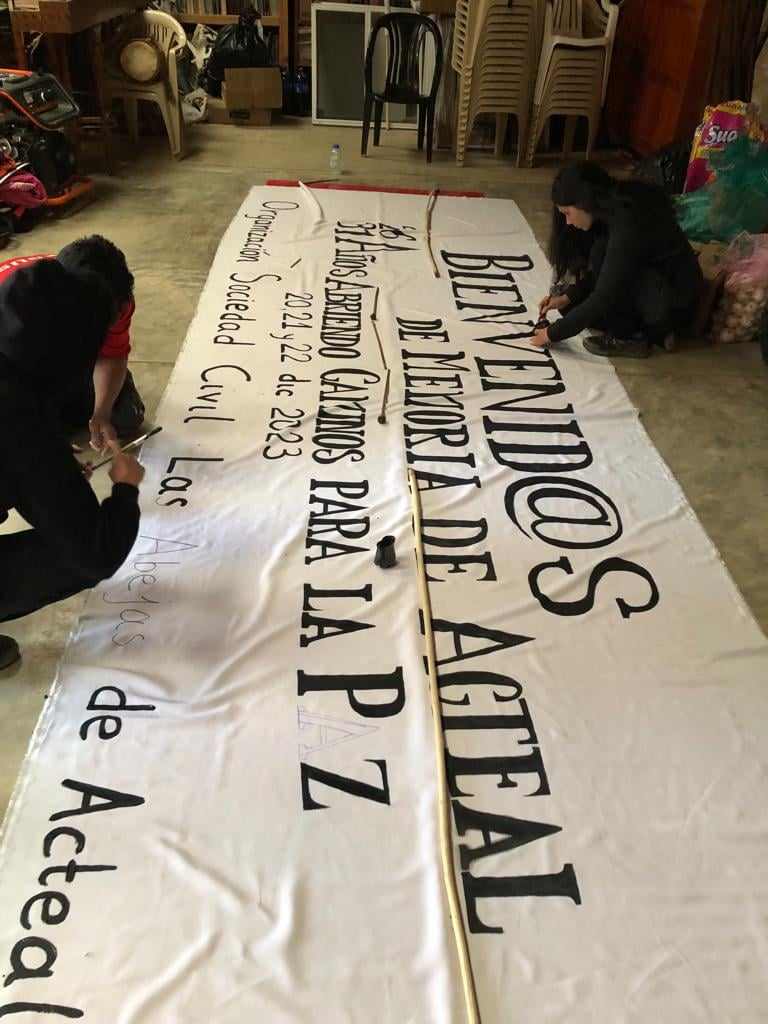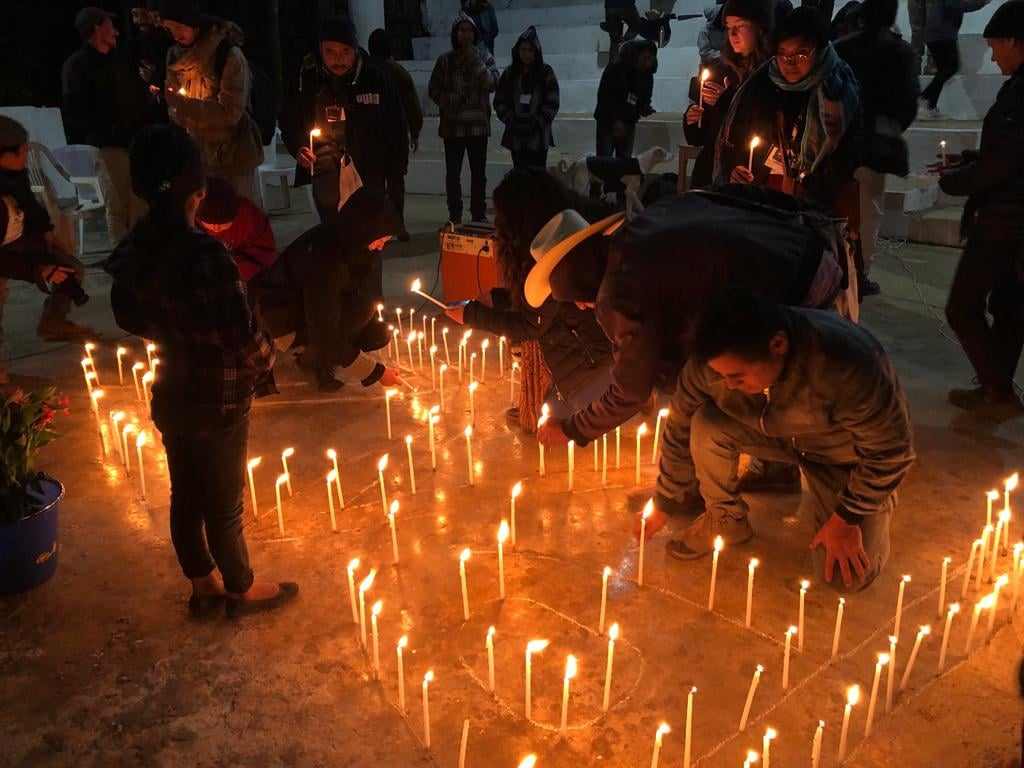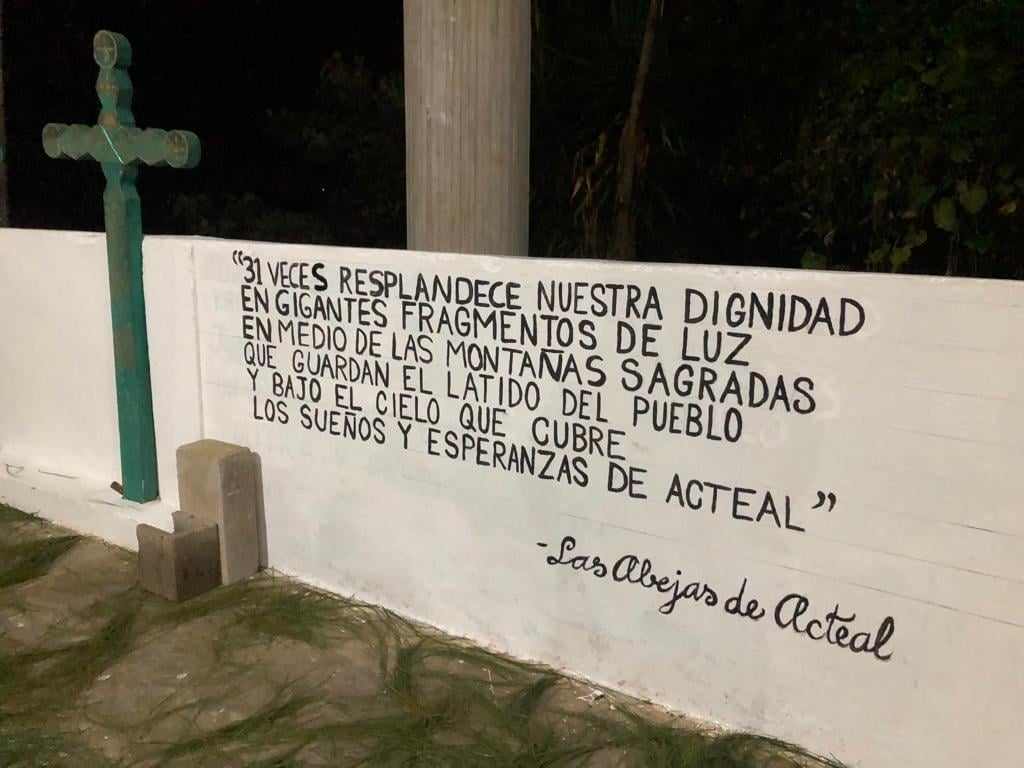
I’m Lieke from the Netherlands, and I’d like to welcome you to this short blog about my experience of volunteering as a BriCO through Schools for Chiapas.
When I came to Mexico I wanted to learn about and contribute to the indigenous struggle. I found out about Frayba and the BriCOs through a friend that I had made in Bacalar. So I continued my path to San Cristobal, did a preparatory workshop with Schools for Chiapas, and went to Acteal to do the Human Rights Obeservations for Frayba.

My time in Acteal was during the memorial of the 26th anniversary of the Masacre in 1997. It was a very special time to be there as a human rights observer.
A couple times I joined and listened to the practicing of the songs of resistance in the library. They where practicing for the memorial. These were very precious moments for me. I was asking myself what these songs mean. How are they able to repeat and practice such a heavily loaded song? And what does peaceful struggle mean? Also, how many other ways resistance are there if you’re non-violent?
These moments of singing showed me some of the answers. It’s having your OWN narrative. Your own expression and own way of telling a story. In the case of Acteal, many outsiders had their explanations and the government told their own story of being irresponsible for what happened.
The way the people from the community express themselves in their music and murals opened some doors for me.
In this world I often wonder how all the problems and conflicts can be solved. To me, fighting violence with violence is a dead end. It’s piling up trash upon trash and in the end you have a disaster. It hurts me deeply to see many people suffer from this all their life.
To see the people of Acteal continue in non-violent resistance is so strong to me. Stronger than giving in to anger, when you can not keep yourself under control anymore. What happens then is pointing at the other’s violence and taking that as an excuse to ruin more lives too.
But it is a hard battle. I talked to some people in from the community about this theme and it’s not only staying non-violent that demands a lot of strength from the people, but also raising children in a non-violent way, in a violent world.

I deeply hope that the future of Acteal, and more communities, will stay peaceful. One of the challenges they face is the incursion of technology into the communities and the arrival of smartphones. I was somewhat surprised to see some of the children playing violent video games and others, aged between five and seven, playing with stick guns in the presence of many people during the anniversary of the massacre.
Maybe these things won’t influence the children, but it is a struggle in Acteal, and in more places, to raise the children in a non-violent environment, at least at home.
Another thing I find so strong about the community is their independence. Because on top of their struggle, there are the government programs that try to get more people to be ‘supported’ by them. That sounds like a good deal, but what you lose is your own ways of life, the land, culture, education, autonomy and your own narrative.
Don’t get me wrong, to me it absolutely makes sense that other indigenous, like Zapatistas defend themselves. But I absolutely admire and I’m very inspired by the way Acteal approaches their struggle
My heart is with the people in Chiapas and with all people in their peaceful resistance. My time in Acteal showed me this human strength and I’m grateful for the experience.

Original article by Lieke for Schools for Chiapas.
Photos by Lieke.
